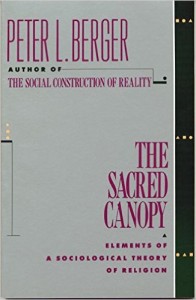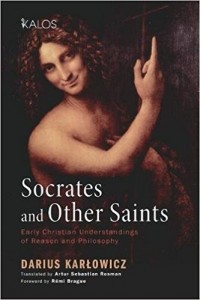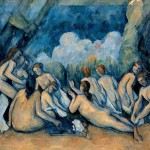![(Lukasz Porwol, Priscilla Chan and Mark Zuckerberg in Prague [detail], 23 May 2013; Source: Wikimedia Commons, CC BY 2.0)](https://wp-media.patheos.com/blogs/sites/455/2017/03/Mark_Zuckerberg_in_Prague_2013.jpg)
 The secularization thesis was popular in the 60’s and 70’s when it seem inevitable that religion would soon wither away and vanish from the face of the world. By the 1990’s, one of its main proponents, Peter Berger, author of the still popular The Sacred Canopy took back all of the book’s secularizing conclusions in an essay featured in the pathbreaking collection The Desecularization of the World. An online interview on how Berger’s views have changed compresses his argument into just a few paragraphs:
The secularization thesis was popular in the 60’s and 70’s when it seem inevitable that religion would soon wither away and vanish from the face of the world. By the 1990’s, one of its main proponents, Peter Berger, author of the still popular The Sacred Canopy took back all of the book’s secularizing conclusions in an essay featured in the pathbreaking collection The Desecularization of the World. An online interview on how Berger’s views have changed compresses his argument into just a few paragraphs:
Secularization theory is a term that was used in the fifties and sixties by a number of social scientists and historians. Basically, it had a very simple proposition. It could be stated in one sentence. Modernity inevitably produces a decline of religion. When I started out doing sociology of religion—like two hundred years ago—everyone else had the same idea. And I more or less assumed that it was correct. It wasn’t a completely crazy assumption; there were many reasons why people said that. But it took me about twenty years to come to the conclusion that the data doesn’t support this, and other people came to the same conclusion. I would say there are now some holdouts who I respect. I like people who say something else from what the majority has to say in the field. It shows character, but most people came to the same conclusion as I did. The world today is not heavily secularized, with two interesting exceptions that have to be explained. One is geographical, it’s Western and Central Europe, and the other is an international intellectual class that is heavily secularized. Why? This is something that can be studied. It has been studied, but I won’t go into this. The rest of the world is massively religious. In some areas of the world, more religious than ever. The theory is wrong. Now, to conclude that the theory is wrong is the beginning of a new process of thinking. I came to the conclusion some years ago that to replace secularization theory—to explain religion in the modern world—we need the theory of pluralism. Modernity does not necessarily produce secularity. It necessarily produces pluralism, by which I mean the coexistence in the same society of different worldviews and value systems.
That changes the status of religion. It’s a challenge for every religious tradition. But it’s not the challenge of secularity; it’s a different challenge. The problem with modernity is not that God is dead, as some people hoped and other people feared. There are too many gods, which is a challenge, but a different one. So this, in terms of my career as a sociologist of religion, has been my major change of mind. I think it’s very useful, and in intellectual history we’ve learned something from Thomas Kuhn, from his The Structure of Scientific Revolutions, that when one theoretical paradigm collapses under the weight of evidence, it opens up the possibility of new paradigms. And it’s very exciting. That’s what I and some other people have been much involved in in the last few years.
 There are still some problems with the new theory, for example, the assertion that pluralism is a byproduct of the modern world, and that this is somehow a problem for traditional religion. My book translation, Socrates and Other Saints, demonstrates how the Ante-Nicene Fathers not only survived in the pluralistic world of Late Antiquity, but thrived, and marked all subsequent theology, by appropriating the thought of ancient Greek and Roman thinkers. This is also something that Robert Louis Wilken, another scholar of Late Antiquity, has written about, that is, the fact that religious pluralism is neither modern, nor radical.
There are still some problems with the new theory, for example, the assertion that pluralism is a byproduct of the modern world, and that this is somehow a problem for traditional religion. My book translation, Socrates and Other Saints, demonstrates how the Ante-Nicene Fathers not only survived in the pluralistic world of Late Antiquity, but thrived, and marked all subsequent theology, by appropriating the thought of ancient Greek and Roman thinkers. This is also something that Robert Louis Wilken, another scholar of Late Antiquity, has written about, that is, the fact that religious pluralism is neither modern, nor radical.
If anything, homogenization of religious practices, is something that the early modern nation-state attempted to impose on its subjects–thereby making them easier to rule. Cavanaugh’s The Myth of Religious Violence and Bossy’s Christianity in the West 1400-1700 are both invaluable resources for understanding this very recent phenomenon.
All of these factors combined make me think that the head for the hills because of rampant secularization panic of books such as The Benedict Option is misplaced, because it puts too much faith in very outdated anti-religiously biased scholarship.
Now that we have laid down a little of the theory, here’s the Mark Zuckerberg news that flew mostly under the radar. Here it is as reported by the Washington Post . . .












